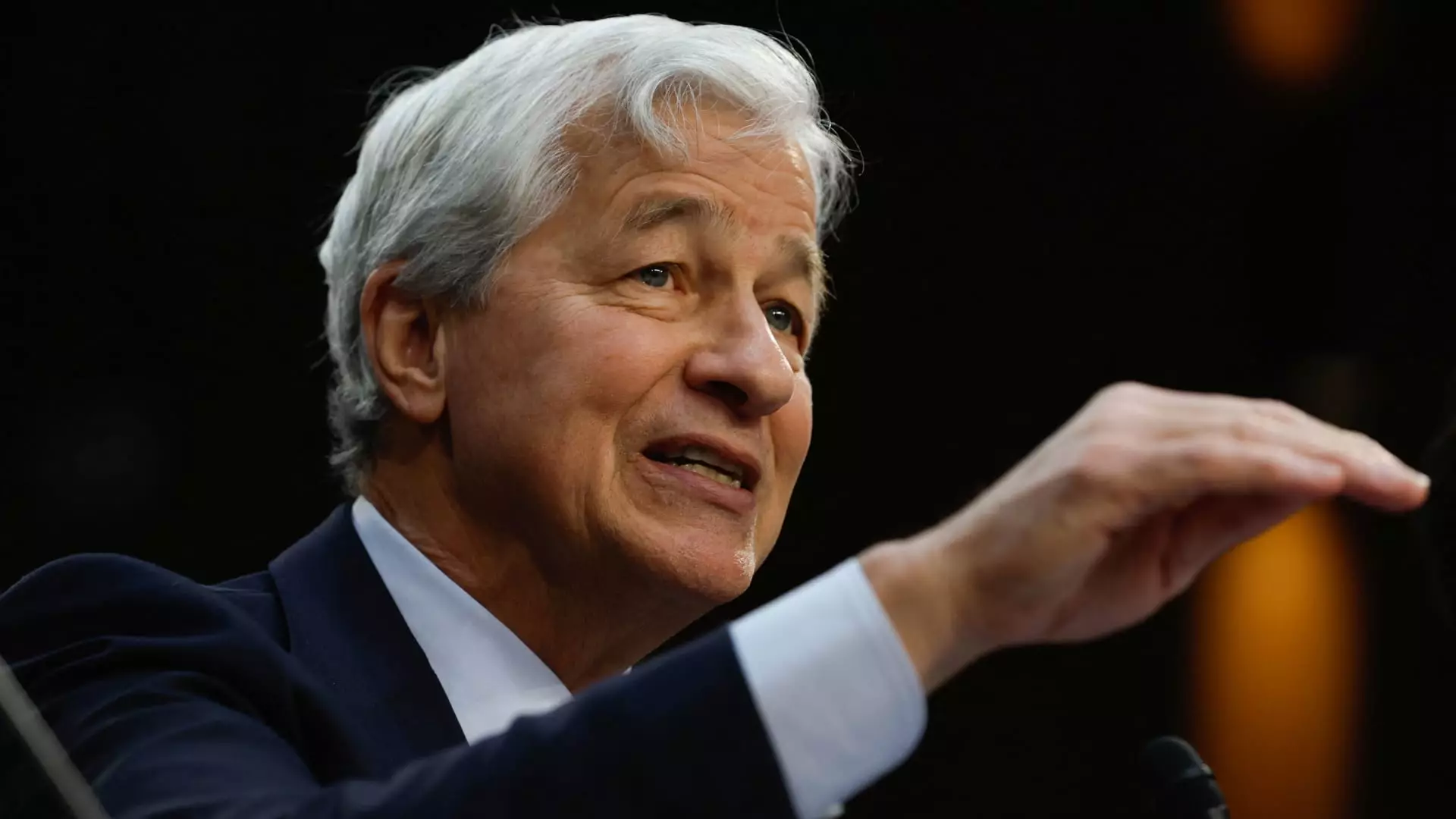In an industry as sensitive to global dynamics as finance, the recent statements by JPMorgan Chase’s CEO, Jamie Dimon, hit a nerve. His prediction that corporate earnings could take a significant dive illustrates the deep-seated anxiety surrounding the ongoing trade negotiations initiated by former President Donald Trump. The sobering sentiment shared by Dimon during a Friday earnings-call isn’t just a reflection of his organization but serves as a bleak indictment of the broader economic landscape. Dimon specifically stated, “I expect to see more companies pull away from guidance,” implying that the volatility inherent in the current trade relations is compelling corporations to adopt a defensive stance.
The Ripple Effect of Policy Uncertainty
While Wall Street analysts have begun to reduce their S&P estimates by 5%, it seems neither Dimon nor his executive team believe we’ve witnessed the worst of it yet. His remarks suggest an impending reality where growth estimates could plummet to flat, or worse—negative 5%. This stark forecast underscores more than just a potential dip in earnings; it highlights the chilling effect that uncertainty has on corporate decision-making. In an environment where policymakers fail to provide clarity, businesses, from small to large, seem to be caught in a vicious cycle of caution that paralyzes long-term planning and strategic investments.
Consumer Sentiment: A Bright Spot in a Gloomy Scenario?
Interestingly, despite the duress felt in corporate corridors, Dimon mentioned that consumer spending appeared to hold up in the first quarter. This raises a puzzling counterpoint: Can the resilience of consumer behavior truly withstand a storm brewed by volatile trade policies? Anecdotal evidence from companies like Walmart and Delta Airlines, which have already started revising projections, suggests that the consumer remains jittery. Consumers may have accelerated their purchases, spurred by a fear that impending tariffs could ultimately raise prices, but this behavior may only be a temporary buffer rather than a sustainable trend.
A Call for Strategic Action Over Reaction
JPMorgan’s CFO, Jeremy Barnum, elaborated on the precarious climate, indicating that businesses are now shying away from long-term innovation and instead focusing on immediate supply chain optimization. This reactive approach may seem prudent in the short run, but it stifles the kind of creativity and forward-thinking that typically drive economic growth. Without a clear horizon for future policies, enterprises are compelled to abandon ambitious projects to focus instead on damage control. The ongoing trade negotiations may indeed force companies into a cycle of short-termism that could hamper the broader economy for years.
Corporate Hesitance: A Broader Dilemma
As depicted by Dimon, the hesitancy among clients to pursue acquisitions signals a worrying trend. The “wait-and-see” attitude permeating the market poses a significant challenge, especially for middle-market companies that rely heavily on stable economic indicators to fuel their growth. The lack of clarity in trade relationships and corporate governance leaves no room for imaginative leaps that can lead to innovation and expansion. Instead, businesses find themselves shackled, waiting for a clear signal from policymakers to move forward, an alarming narrative that the economy cannot endure indefinitely.

